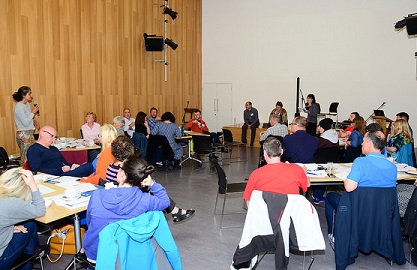 Towards More Humane, More Participatory and Effective Responses to Offending Behaviour
Towards More Humane, More Participatory and Effective Responses to Offending Behaviour
In 2014, the Scottish Government launched proposals for the reform and redesign of community justice, with an explicit emphasis on better outcomes, community collaboration and strategic leadership. The evidence is clear and political and professional rhetoric professes to recognise this - prison does not work. This project sought to pick up on this developing consensus that change is needed. It also, however, took as a starting point that, despite this political rhetoric, progress has been slow; new and progressive ambitions for justice continue to be pursued using old methods, revealing a continued reliance on structures, legislation and policy, performance management and revised funding streams as the principal means of effecting change. The bottom line was that imprisonment rates at the start of the project remained at an all-time high and community sentences were rising, not so much as an alternative to imprisonment but alongside it, suggesting ever-greater recourse in Scottish society to criminal justice sanctions. The starting point, then, in this project was to seek to look behind the rhetoric to consider what might be the philosophical and socio-cultural constraints and enablers to reform, including, for example, Scotland’s historically complex relationship to punishment and welfare in delivering justice.
Specific objectives:
- To seek to understand why, in spite of research evidence of what does and doesn’t work in reducing re-offending, and against policy direction, Scotland continues to place undue reliance on punitive and ineffective criminal justice responses.
- To explore and identify the barriers to the advancement of a more humane, participatory and effective justice practice, including the role of particular ideologies and rhetoric and of professional and activist interests.
- To envision, using research evidence, what a humane, participatory and effective criminal justice system might look like.
- To harness the knowledge and mobilise the energies of professional communities and civic society to make and sustain the case for a new criminal justice paradigm.
- To institute a broad and diverse programme of events and knowledge exchange activities that extends beyond the seminar series to mobilise and sustain pathways for change.